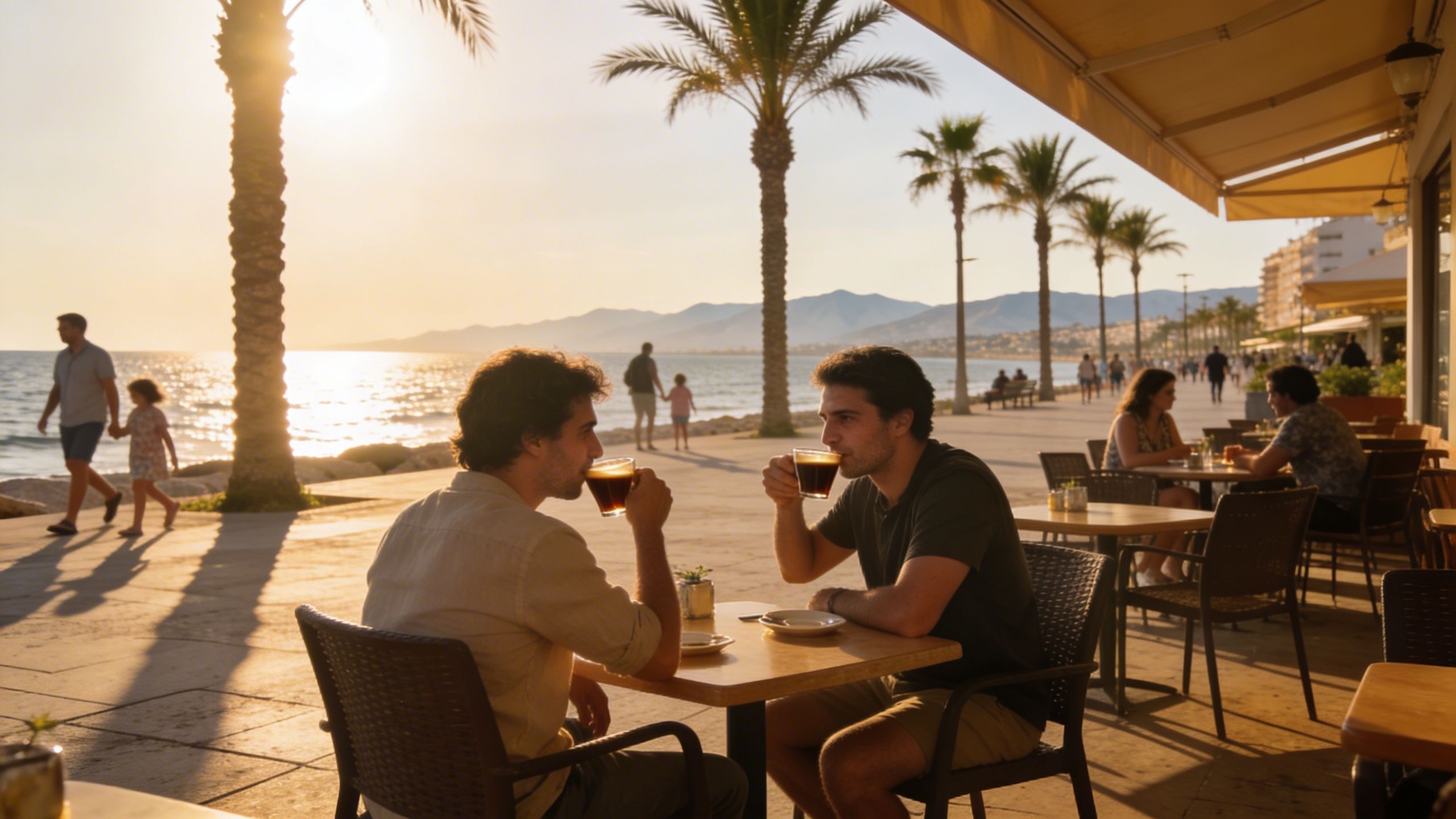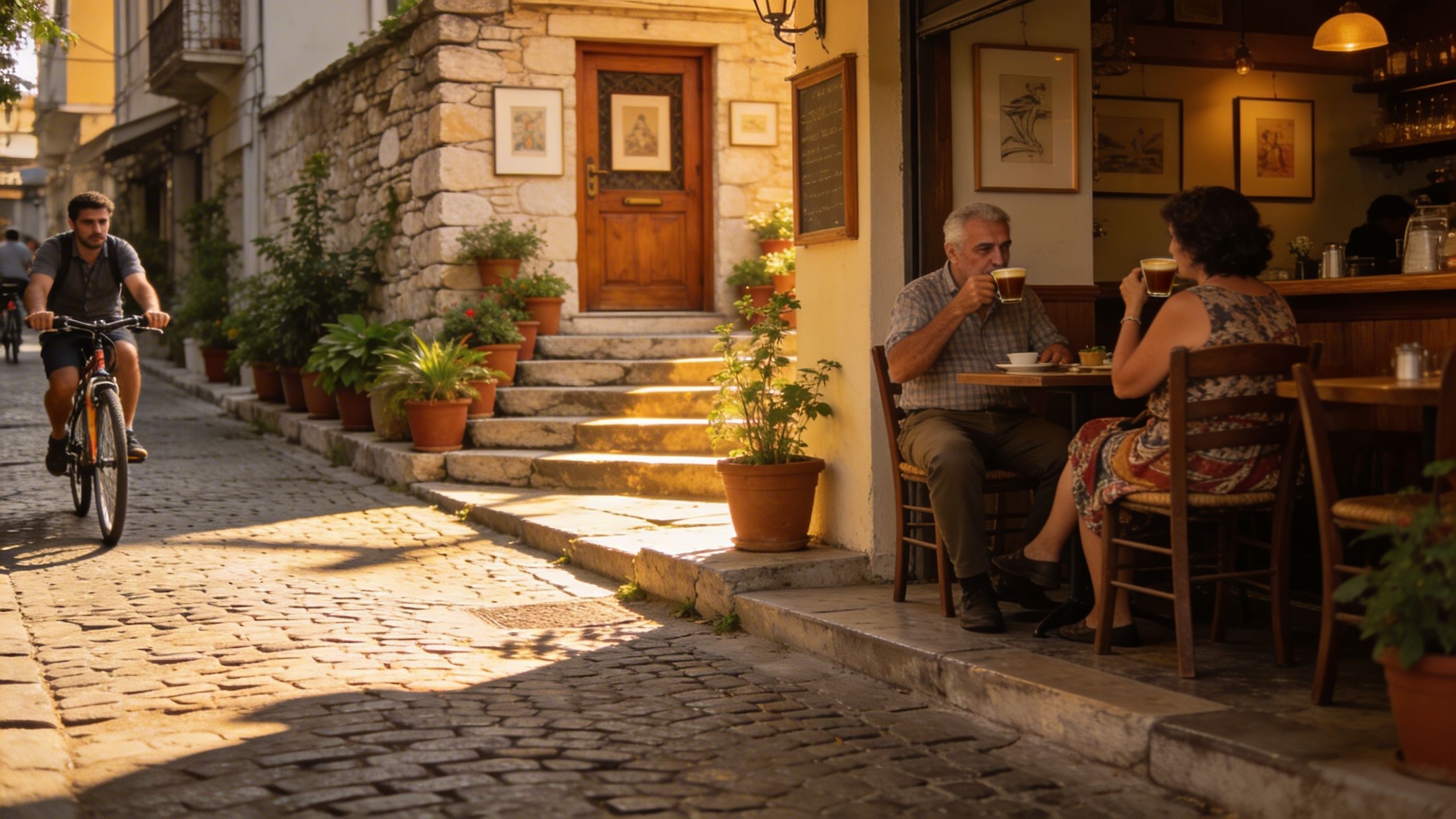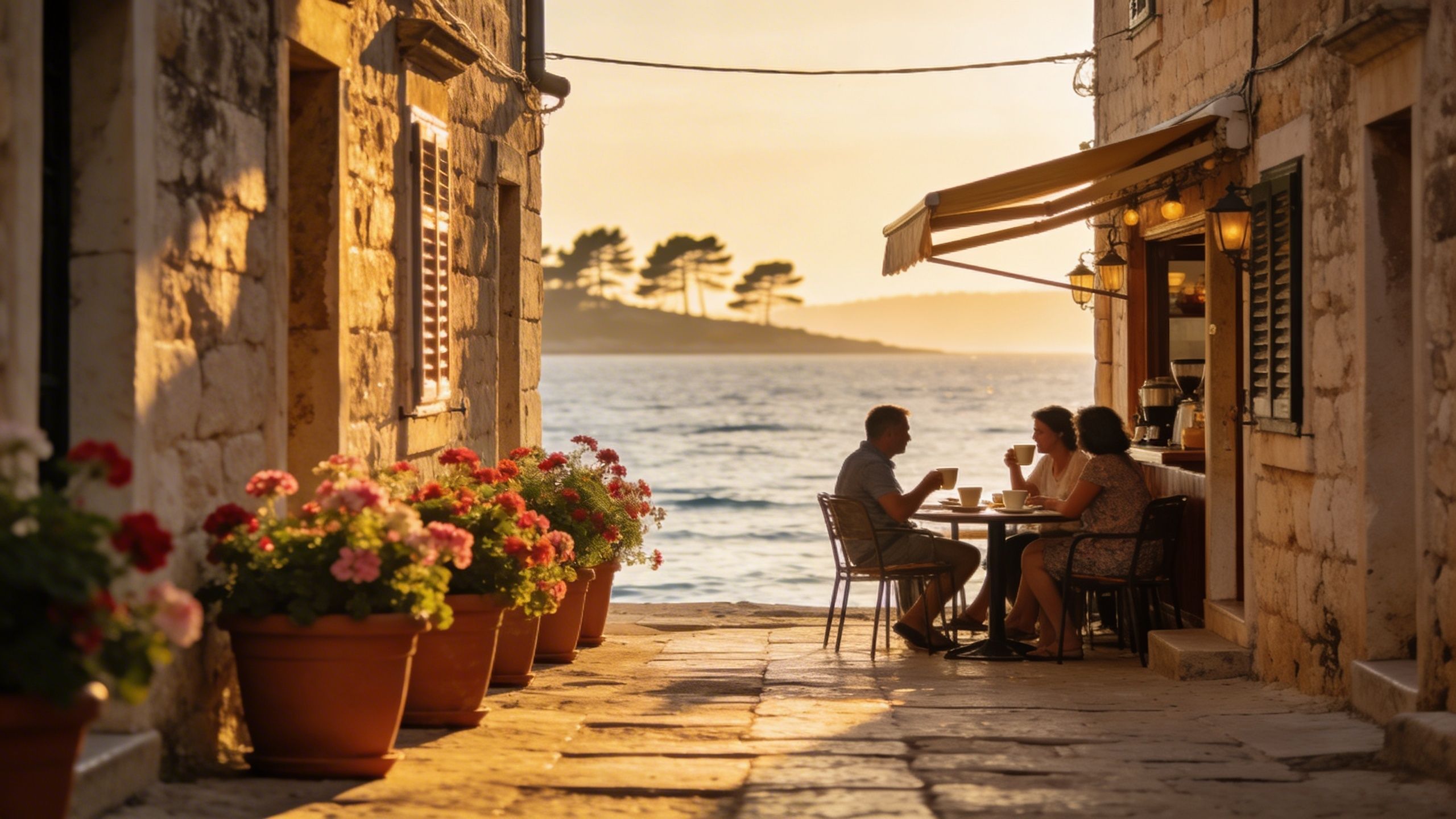Cyprus: Life-First Due Diligence for Buyers
Fall for Cyprus’s sunlit daily rhythms — then protect the dream with title checks, permit reviews and local planning insight backed by official statistics.
Imagine waking to sea-breezes on a terrace in Paphos, then wandering a Sunday market in Limassol for freshly baked koulouri and mountain honey. Cyprus smells of citrus groves and sea salt; mornings are for cafes on Gladstonos Street in Larnaca, evenings for long dinners under bougainvillea in traditional villages. This island gives you a gentle, sun-lit rhythm — but if you’re ready to move here, the romance pairs with a particular set of legal and permit realities that every international buyer must respect.
Living Cyprus: small streets, big seasons
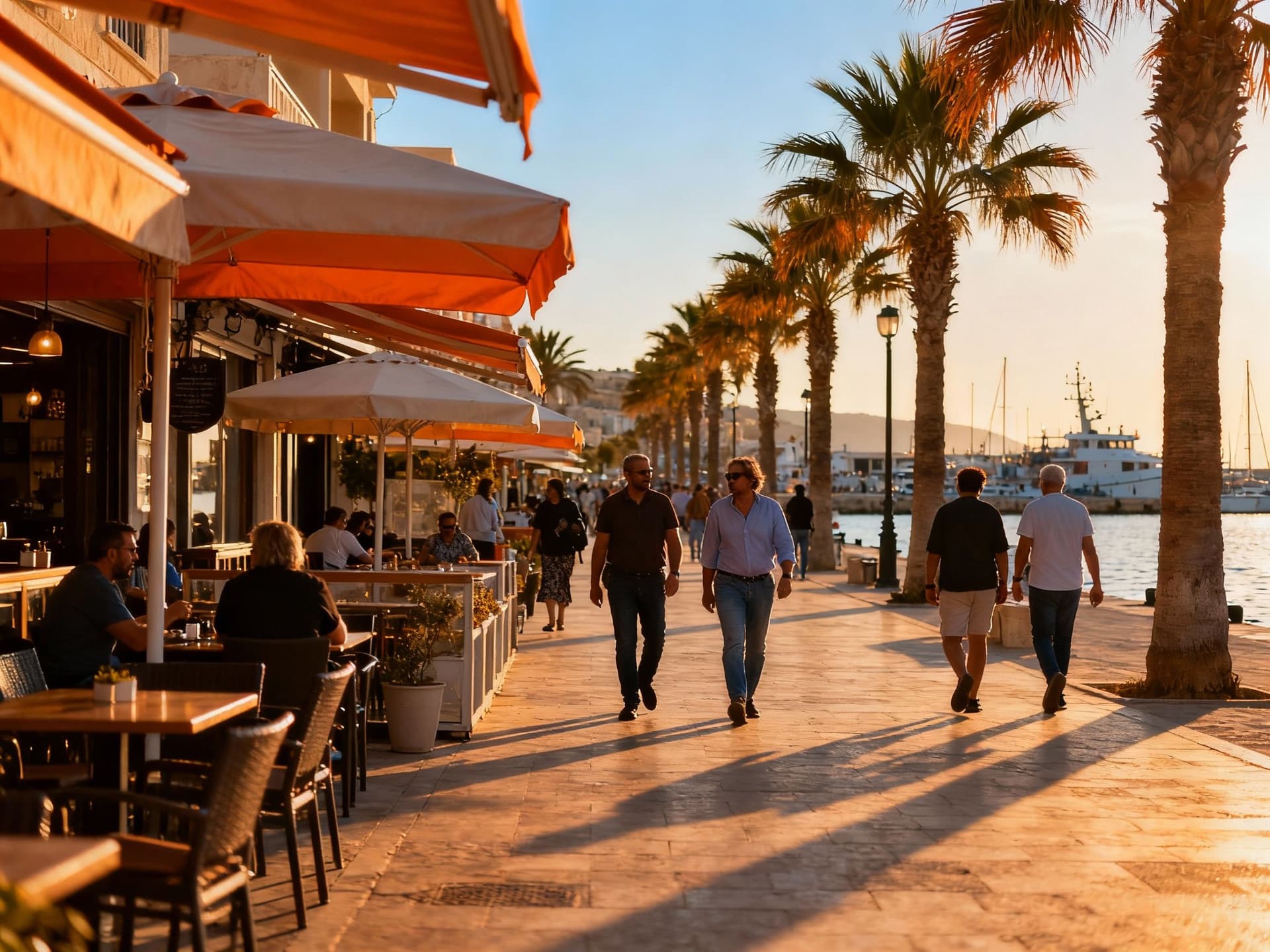
Life in Cyprus feels local in scale and grand in season. Winters are mild and olive-grey in the mountains; springs burst with wildflowers along the Akamas. In coastal neighbourhoods like Limassol’s Germasogeia or Larnaca’s Mackenzie, mornings begin with espresso and sea light, while Nicosia’s old town hums with artisanal bakeries and late-night tavernas. That texture — village festivals, seaside rituals, neighbourhood baristas — is what you’re buying alongside brick and stone.
Neighbourhood snapshots: where to feel at home
If you want coastal energy with cultured cafés, look to Limassol’s Molos promenade and the quieter lanes behind Franklin Roosevelt; for slow village life among pines and stone houses, the Troodos foothills and villages like Omodos offer an intimacy few places match. Paphos combines coastal beaches with winding streets around the harbour; Larnaca brings airport convenience and a long local promenade where families stroll at dusk.
Food, markets and weekend rituals
Weekends in Cyprus are deliciously local: citrus and halloumi at Nicosia’s municipal market, fresh fish at Paphos’ harbour tavernas, and Sunday lunches that unfold like a slow ritual. Small producers sell carob syrup and thyme honey; you’ll learn which bakery on Spyrou Kyprianou makes the flaki with the flaky crust you crave. These daily pleasures shape how you choose a home — proximity to markets, a kitchen that welcomes long cooking sessions, outdoor spaces for dining.
- Lifestyle highlights: Molos promenade (Limassol), Kato Paphos harbour, Mackenzie beach (Larnaca), Omodos village square, Nicosia’s Laiki Yitonia quarter, Akamas nature trails.
From dream to deed: practical reality checks
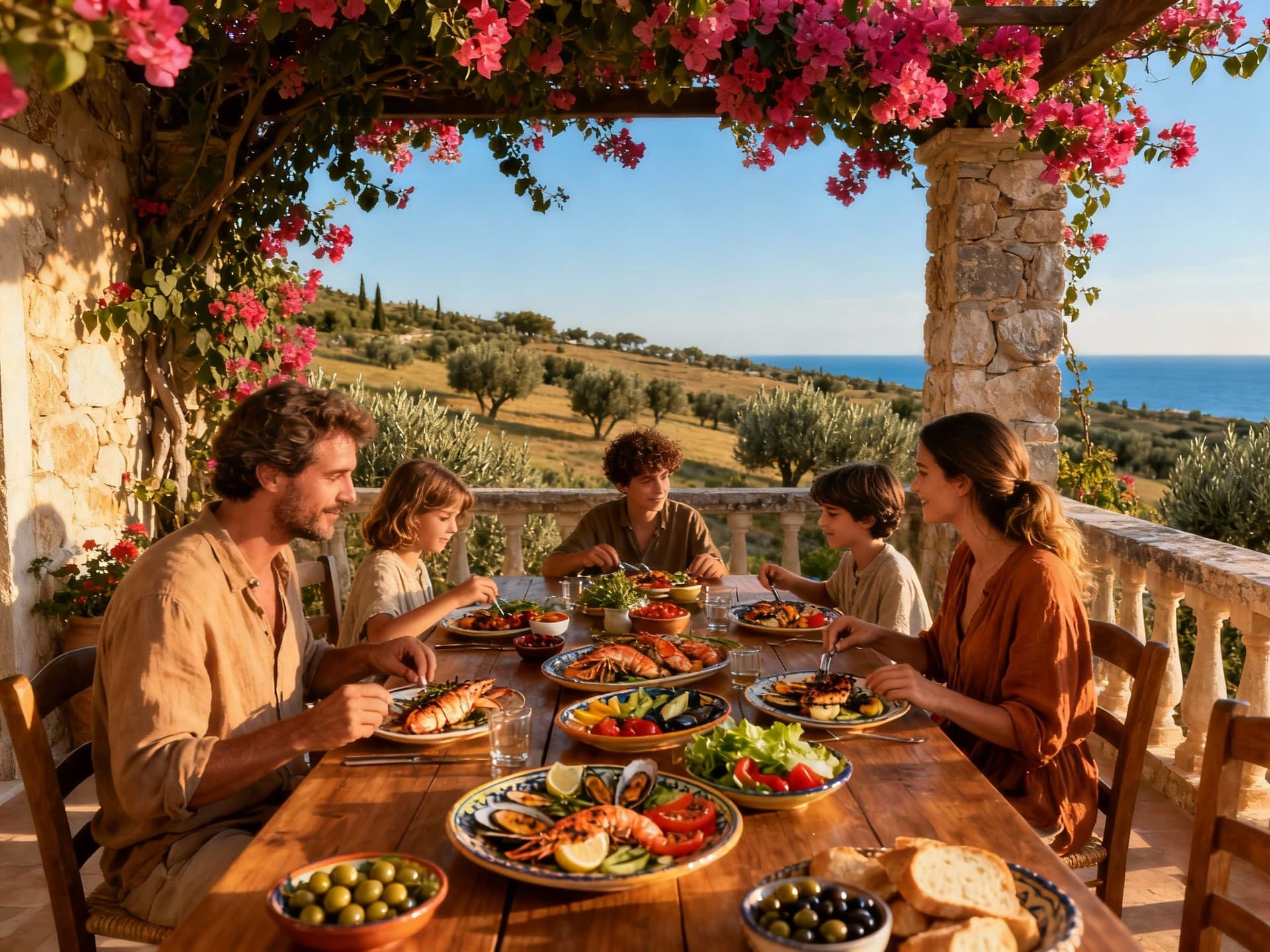
Romance makes you look at terraces; due diligence makes you read the title deed. Cyprus has recently seen record transaction values and shifting district momentum — official statistics show strong sales activity in 2024 and detailed monthly contracts tracked by the Department of Lands & Surveys — meaning paperwork, limits on foreign purchases in some parcels, and planning rules are actively enforced. Treat the paperwork as part of the welcome: it protects the island’s landscape as much as your investment.
Property types and what they mean for living sustainably
From stone village houses to seafront apartments, each property type asks for different stewardship. A traditional stone home in the Troodos will need moisture-aware repairs but rewards you with thermal mass and passive comfort; coastal apartments often offer modern systems but require attention to sea-spray corrosion and insulation. Recent indices from the Central Bank show district-level price shifts — a reminder to match lifestyle priorities (walkable streets, garden space, sea access) with realistic maintenance plans and permit checks.
Work with experts who care about place
- A local multidisciplinary team should include: a Cyprus-licensed lawyer experienced in transfers and foreign purchases; a chartered surveyor who checks title, boundaries and structural condition; a planning consultant knowledgeable about local building permits; and an agent fluent in both the neighbourhood culture and municipal procedures.
- Step-by-step due diligence checklist: 1) Obtain preliminary title search and seller’s documents. 2) Commission a structural and pest survey. 3) Verify building permits and Certificate of Final Approval with the local municipality. 4) Confirm any restrictions on foreign ownership via the Department of Lands & Surveys statistics and legal counsel. 5) Budget for transfer fees, VAT where applicable, and local closing costs.
Insider knowledge: expat truths and local quirks
Expats often tell the same two surprises: first, Cyprus feels small — paperwork moves with local rhythms and relationships matter; second, seasons change how neighbourhoods behave. A coastal town thrums in July and becomes contemplative in November. Knowing the social pulse will affect rental potential, community integration, and the timing of inspections.
Cultural cues that shape where you live
In Cyprus, neighbours greet loudly and services follow local hours. Municipalities host festivals where planning permissions can be temporarily relaxed for pop-up events; ask local councils about seasonal licences if you plan hospitality rentals. Language is friendly for English speakers, but learning Greek opens doors; local craftsmen and architects still prize traditional stonework and shaded courtyards for thermal comfort.
Long-term lifestyle questions to ask now
- Considerations that shape enduring happiness: - How will the property perform in summer heat and winter humidity? - Is there space for solar panels, rainwater harvesting or a native-plant garden? - Are neighbours year-round residents or seasonal renters (affecting community feel)? - What are local waste and recycling arrangements and municipal greening plans? - How resilient is local infrastructure (water, roads, healthcare) for longer stays?
Market snapshot: official and industry reports show Cyprus saw robust transaction values in 2024, with coastal districts like Limassol continuing to command premium prices while buyers search for value in Larnaca and Paphos. Use these trends not as a timing gimmick but to prioritise places that fit your daily life while being mindful of shifting demand and local permit timelines.
Final thought: let place lead the process. Buy the life — morning markets, neighbourly tavernas, a small garden tended with rosemary and thyme — and then pair that desire with careful, document-forward due diligence. Cyprus rewards patience: the best homes are those that sit comfortably in their landscape, with permits in order, community ties intact, and modest long-term maintenance needs.
Next steps: start with a local title check, commission a sustainability-minded surveyor to assess solar potential and thermal performance, and ask your agent to arrange meetings with the municipal planning office before making any deposit. A small investment in due diligence now secures the slow, luminous life Cyprus offers.
Norwegian market analyst who relocated from Oslo to Provence; guides investors with rigorous portfolio strategy and regional ecological value.
